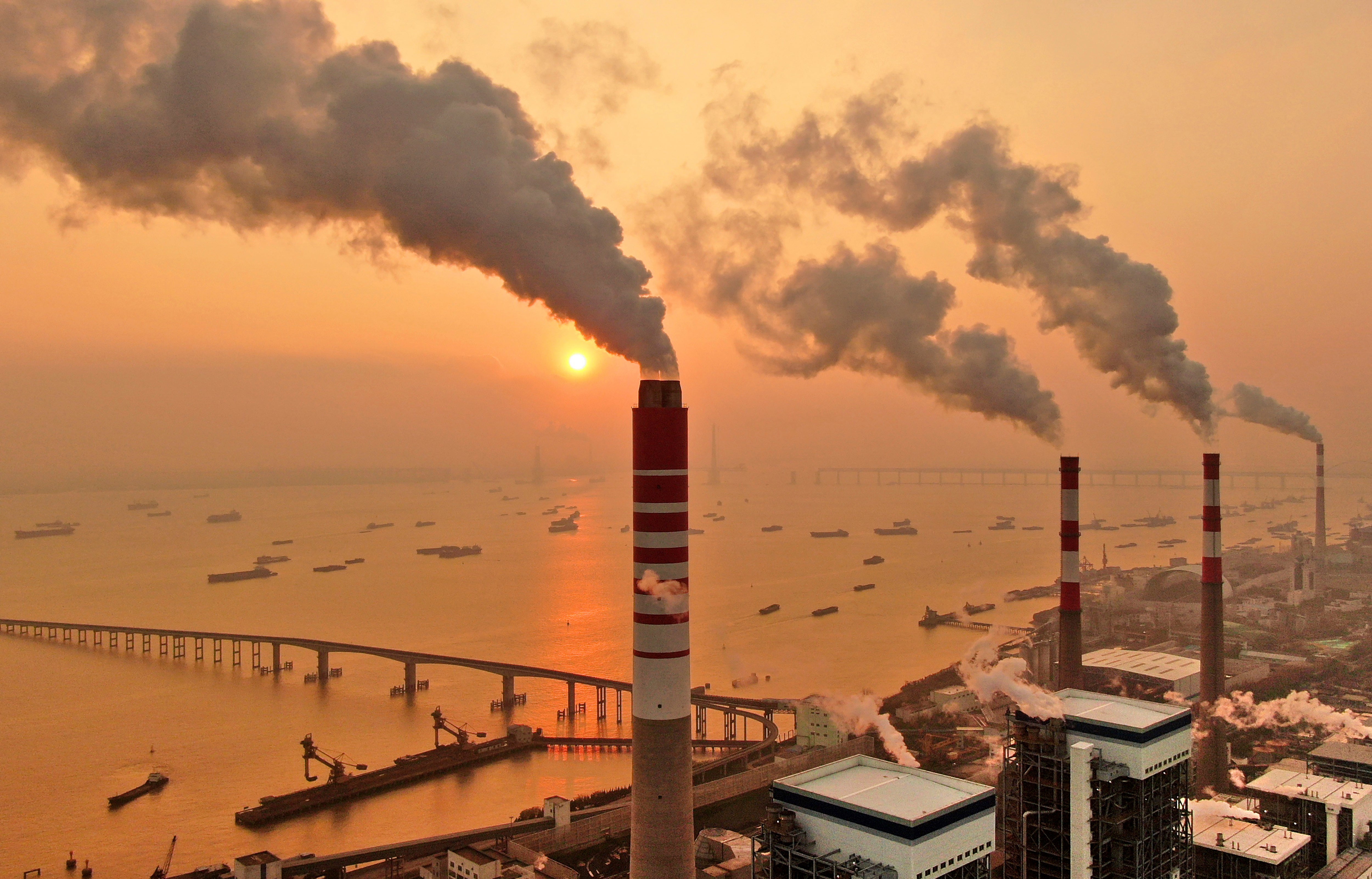China, moving cautiously, starts carbon trading market
China has begun operating its first nationwide carbon trading market in a step meant to help curb worsening pollution

Your support helps us to tell the story
From reproductive rights to climate change to Big Tech, The Independent is on the ground when the story is developing. Whether it's investigating the financials of Elon Musk's pro-Trump PAC or producing our latest documentary, 'The A Word', which shines a light on the American women fighting for reproductive rights, we know how important it is to parse out the facts from the messaging.
At such a critical moment in US history, we need reporters on the ground. Your donation allows us to keep sending journalists to speak to both sides of the story.
The Independent is trusted by Americans across the entire political spectrum. And unlike many other quality news outlets, we choose not to lock Americans out of our reporting and analysis with paywalls. We believe quality journalism should be available to everyone, paid for by those who can afford it.
Your support makes all the difference.Chinese power companies bid for credits to emit carbon dioxide and other climate-changing gases as trading on the first national carbon exchange began Friday in a step meant to help curb worsening pollution.
The official Xinhua News Agency said the experimental first phase of carbon trading at the Shanghai Environment and Energy Exchange includes some 2,000 companies in the power industry that produce about 40% of China’s emissions.
Over time, other major emitters will be added, such as airlines, the building materials industry and iron and steel makers.
China is the biggest carbon emitter, but President Xi Jinping said last September that output should peak in 2030 and then decline. He said China should achieve “carbon neutrality,” or zero total output after measures to remove carbon or offset emissions are counted, by 2060.
The ruling Communist Party has resisted adopting any binding limits on carbon emissions, saying China has to focus first on economic development.
At the Shanghai exchange, companies will be assigned emissions quotas and can sell the surplus if their output comes in under that level, Xinhua said. The goal is to create financial incentives for companies to reduce emissions.
China has had regional carbon trading markets as pilot projects for several years.
Earlier, European power utilities and other companies paid for Chinese polluters to add wind, hydro and solar generating capacity in exchange for being allowed to increase their own emissions. The European Union ended that after it failed to slow the rise of Chinese emissions.
The carbon market is unlikely to deliver immediate reductions, said Cory Combs, an analyst with consultancy Trivium China.
“This first year is about getting the process working,” he said on a webinar this week. “The goal is to get this thing right, because if they get it right, then for the next 40, 50 . . . years to come, this can be a huge player.”
The European Union unveiled a proposed revamp of its emissions trading program this week as part of sweeping legislation to cut emissions of gases that cause global warming.
Subscribe to Independent Premium to bookmark this article
Want to bookmark your favourite articles and stories to read or reference later? Start your Independent Premium subscription today.